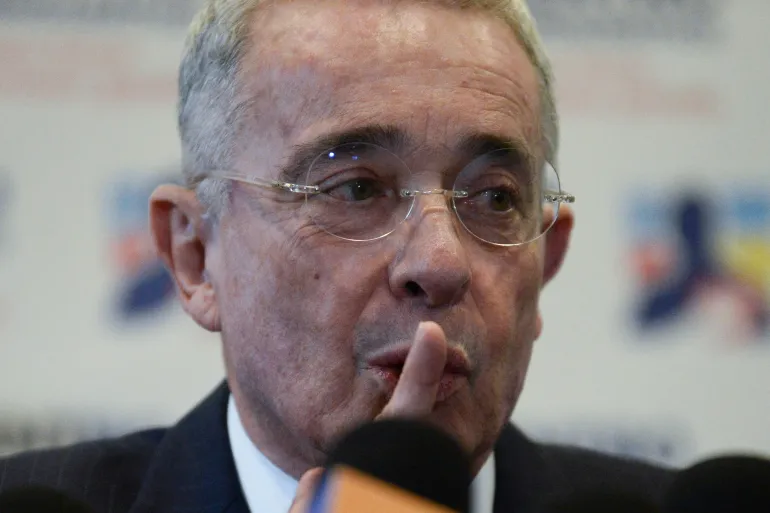Alvaro Uribe, who led Colombia as president from 2002 to 2010, has become the first former Colombian head of state to be convicted of a crime. A court in Bogotá found the 73-year-old guilty of witness-tampering and fraud, marking a dramatic fall from grace for a man once praised for his tough stance against guerrilla insurgents.
Uribe was convicted of attempting to manipulate key testimony in a case that stemmed from accusations linking him to right-wing paramilitary groups organizations known for widespread human rights abuses during Colombia’s decades-long internal conflict. Prosecutors said Uribe contacted jailed former paramilitaries, allegedly offering them benefits in exchange for denying any association with him. The trial involved over 90 witnesses and has stretched over a decade since charges first emerged in 2012.
Uribe has consistently denied the allegations and is expected to appeal the ruling. “I sought the truth, not lies,” he said, maintaining that his efforts were to encourage ex-fighters to be honest. However, the court concluded his actions amounted to tampering with witnesses in an effort to obstruct justice.
During his presidency, Uribe was lauded, particularly by the United States, for his uncompromising approach to battling the leftist guerrilla group FARC (Revolutionary Armed Forces of Colombia). Yet his legacy remains deeply polarizing. While he is credited with weakening guerrilla movements and improving national security, critics argue his administration failed to address Colombia’s persistent inequality and social divides.
The ruling also sparked political backlash abroad. U.S. Secretary of State Marco Rubio condemned the verdict, accusing Colombia’s judiciary of being “weaponised.” He described Uribe’s only “crime” as defending his homeland against armed groups.
The conviction is a landmark moment for Colombia, a country still grappling with the legacies of conflict and impunity. It underscores the judicial system’s willingness to hold even the most powerful figures accountable. While FARC signed a peace deal in 2016 under Uribe’s successor, violence continues in some regions, fueled by the remnants of both guerrilla and paramilitary groups involved in the narcotics trade.
Uribe’s sentencing will follow, with each conviction carrying up to 12 years in prison.

